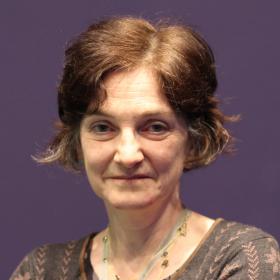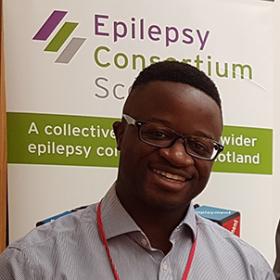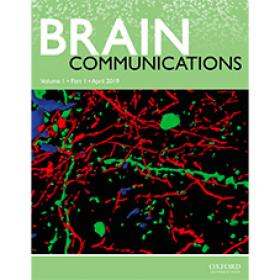Latest news
Prof Mark Evans (Centre for Discovery Brain Sciences) and colleagues have published a study investigating cellular processes in the body, indicating that cells can rapidly rewire their communication networks to change their behaviour.


Congratulations to Professor Peter Sandercock and the late Professor John Starr for being among the 2019 Inspiring Physicians of The Royal College of Physicians of Edinburgh. They were nominated by Fellows and Members throughout the world.
Congratulations to Lottie Hickman, a SSC5 medical student, and Yvonne Zuurbier, a visiting neurology clinical research fellow from Amsterdam, for winning the Cavernoma Alliance UK (CAUK) "Caver-no-more 2030" Essay Prize.
The essay prize was launched as part of CAUK’s “Caver-no-more 2030” strategy with an ambitious goal of finding a cure for the condition by the year 2030.
The Real world Outcomes across the Alzheimer’s Disease spectrum for better care: Multi-modal data Access Platform (ROADMAP) project is proud to announce the public launch of its Data Cube, which allows a dynamic overview of the “landscape” of data availability in Europe for Alzheimer’s disease (AD) research.
Dr Kristin Nicodemus (Institute for Genetics & Molecular Medicine) and colleagues have recently published an in-depth review of studies investigating neuroeconomic gameplay in psychiatric disorders.
Dr Michael Thrippleton and members of the HARNESS Initiative, led by Professor Joanna Wardlaw (both Centre for Clinical Brain Sciences), have recently published an in-depth review and position statement on MRI measurement of subtle blood-brain barrier leakage in clinical research studies.

Professor Joanna Wardlaw (Centre for Clinical Brain Sciences and ) and colleagues have published a study investigating treatments for preventing the recurrence of lacunar stroke, a condition which often occurs in small vessel disease, which can result in memory problems and dementia.

Dr. Thomas Becker (Centre for Discovery Brain Sciences) and colleagues investigating Parkinson’s have found that zebrafish are able to use specialised brain stem cells to replace lost or destroyed dopamine-producing nerve cells, a process which appears to involve activation of the immune system.

Gashirai Mbizvo, a junior doctor and Clinical Research Fellow at the Muir Maxwell Epilepsy Centre, Centre for Clinical Brain Sciences, was invited to present his PhD research at the Scottish Parliament recently. Gash’s PhD is on the Scottish Epilepsy Deaths Study (SEDS) and he presented at the Epilepsy Consortium Scotland, the Cross Party Group meeting held at Scottish Parliament, Holyrood, on 28 March.

Prof Tara Spires-Jones has recently launched a new Neuroscience journal called Brain Communications. It will publish high-quality preclinical and clinical studies related to diseases of the nervous system or maintaining brain health and aims to be a force for good in the translational neuroscience field by facilitating a high standard of rigour and transparency and promoting career development of neuroscientists.

